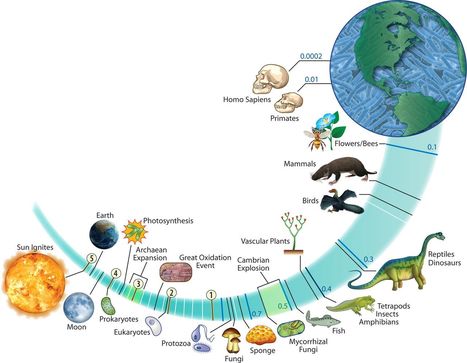We often overlook the fact that the concept and impact of the “microbiome” extend far beyond the human body.
In fact, microorganisms have populated, dominated, and shaped our planet and its inhabitants for over 3.5 billion years. Plants and multicellular animals (Metazoa) first emerged ~800 million and ~700 million years ago, respectively.Modern humans have existed for roughly only 250,000 years, and are thus merely a recently emerged twig in the tree of life.
It is perhaps not surprising that single-celled microorganisms, the pioneers of life on Earth, played critical roles in the evolution and functioning of all other living organisms. Like a modern-day corporation, most eukaryotes have outsourced (or, more accurately, insourced) several key functions to bacteria.
The mitochondrion that functions as a cellular power plant in eukaryotes evolved from once-free-living bacteria that were engulfed; similarly, the chloroplast that is the center of photosynthesis in plants was likely derived from one or more free-living bacteria.
This intermingling of genes and functions across the tree of life continues, allowing multicellular organisms to adapt more rapidly to new environments, using the versatility of their microbial partners.
The ubiquity of microorganisms and their breadth of impact on the habitability of our planet have prompted musings of what life would be like without them.
However, unlike “germfree” animals or plants in the confines of the laboratory, the health of the planet’s environment and that of its inhabitants are absolutely dependent on their microbial partners."



 Your new post is loading...
Your new post is loading...







